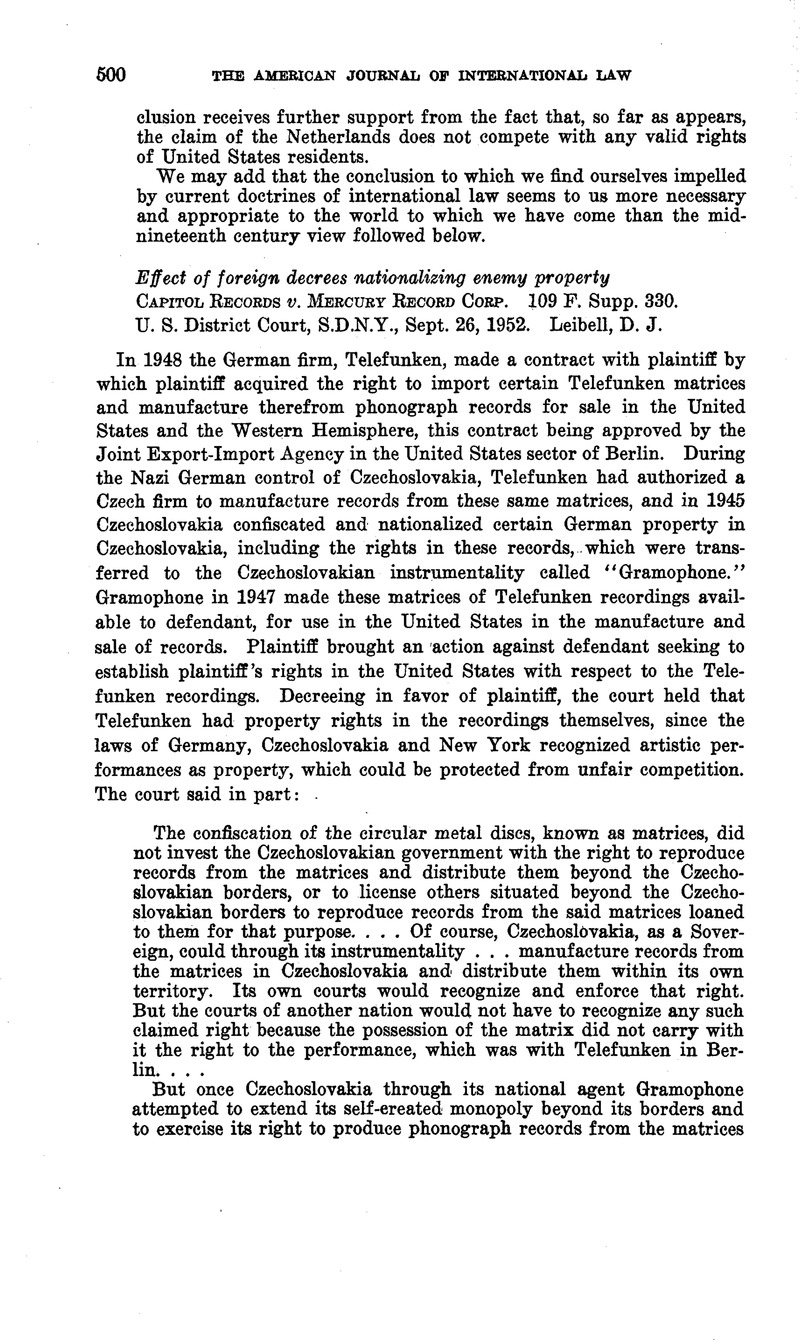No CrossRef data available.
Article contents
Capitol Records v. Mercury Record Corp. 109 F. Supp. 330
Published online by Cambridge University Press: 20 April 2017
Abstract

- Type
- Judicial Decisions
- Information
- Copyright
- Copyright © American Society of International Law 1953
References
1 See Dept. of State Bulletin, Vol. 18, p. 12.
2 Pointing out that the case did not turn upon the Communist character of the present Czechoslovak Government, the court said: “The Communistic regime now in control of the government of Czechoslovakia has been recognized by the United States, at least to this extent that the two governments maintain diplomatic relations. We may disapprove and abhor many of the things the present government of Czechoslovakia has done and reject communism and all its works, but that has nothing to do with the issues in this case. The manner in which the decrees or edicts were made or issued may not be our idea of enacting legislation, but if that is the way they do those things under their form of government, we give it effect in our courts.”
See also Perutz v. Bohemian Discount Bank in Liquidation, 304 N. Y. 533, 110 N. E. (2d) 6 (Jan. 9, 1953), holding that a Czechoslovak foreign exchange control law prevented payment by a Czechoslovak bank of a pension to a former employee, in which the court said: “A contract made in a foreign country by citizens thereof and intended by them to be there performed is governed by the law of that country. … Our courts may, however, refuse to give effect to a foreign law that is contrary to our public policy. … But the Czechoslovakian currency control laws in question cannot here be deemed to be offensive on that score, since our Federal Government and the Czechoslovakian Government are members of the International Monetary Fund established by the Bretton Woods Agreement Act.” For the contrary view of the Appellate Division, see 110 N. Y. S. (2d) 446 (1st Dept., Feb. 13, 1952).




